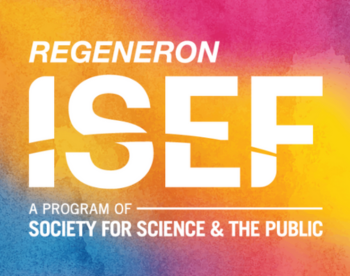Regeneron ISEF 2024 PHYS First Award: Highlights and Analysis
[elementor-template id="1670"]
In the previous article, Embark Tutor analyzed the winning projects in the Microbiology (MCRO) category in detail. Today, let's turn our attention to the Physics and Astronomy (PHYS) category of the 2024 ISEF Global Finals to see how these outstanding research projects stand out from the fierce competition.
In 2024 ISEF Global Finals , the Physics and Astronomy category mainly studies the basic laws of nature and the mysteries of the universe, involving fields such as classical mechanics, quantum mechanics, and astrophysics. These studies help to deepen our understanding of the origin, structure, and evolution of the universe, and promote the development of science and technology and cosmic exploration. Through the study of physics and astronomy, we can explore unknown areas, unlock the mysteries of the universe, and contribute to the scientific knowledge and progress of human civilization.
When we look at the Physics and Astronomy category in ISEF, we are not only studying the mysteries of nature and the universe, but also exploring the boundaries and unknown areas of science. This field covers many aspects such as classical mechanics, quantum mechanics, and astrophysics, providing us with an opportunity to deeply understand the nature and evolution of the universe. These studies not only promote the development of science and technology, but also inspire human beings' infinite desire to explore the universe.
In this vast academic field, Embark provides ISEF online private tutoring for students who are interested in the field of Physics and Astronomy. We are committed to providing students with more thinking angles and learning resources through in-depth analysis of the PHYS first prize project, helping them achieve excellent results in this field. We hope to inspire students' research passion and promote their academic growth and development in the field of physics and astronomy.
In this article, Embark deeply analyzes the PHYS first prize project, aiming to provide readers with more thinking angles and learning resources, in order to inspire inspiration and promote mutual learning.
Regeneron ISEF 2024 PHYS First Award-Highlights
l Project name
PHYS067T - ML for LIGO Continuous Gravitational Waves
Figure 1
l Project Introduction
This project uses machine learning technology to improve the detection efficiency of continuous gravitational waves. By training convolutional neural networks to automatically mark line artifacts, the detector sensitivity is improved; at the same time, a physical information neural network is constructed to reduce the computational complexity of continuous wave searches. The project aims to achieve the first end-to-end continuous wave machine learning processing pipeline, thereby improving the understanding of astronomical phenomena such as neutron stars and dark matter.
Regeneron ISEF 2024 PHYS First Award-Analysis
This Regeneron ISEF Award-Winning Project aims to optimize the efficiency and accuracy of LIGO (Laser Interferometer Gravitational-Wave Observatory) in continuous gravitational wave (CW) searches by integrating machine learning techniques. By deeply studying the application of machine learning in spectral noise classification, the project team seeks to use this method as an alternative to traditional deterministic methods to solve the problem of spectral noise artifacts and reduce the computational complexity of continuous wave searches.
The core analysis scope of the project focuses on LIGO's detector characterization (DetChar) activities. DetChar is a key step in ensuring that the detector achieves optimal performance and confirms gravitational wave candidate signals. By improving the sensitivity of the detector, the project aims to improve the capture ability of gravitational wave signals, thereby increasing the chances of discovering continuous gravitational waves.
The innovation of this project is that it attempts to use machine learning algorithms to automatically identify and classify spectral noise, which is expected to greatly improve the speed and accuracy of data processing. Traditional spectral noise classification methods often rely on manual review, which is not only time-consuming but also prone to errors. By training machine learning models to automate this task, significant manpower savings and efficiency improvements can be achieved.
In addition, the project also explored how to reduce the computational complexity of continuous wave searches. Continuous wave searches are the process of searching for gravitational wave signals generated by rapidly rotating asymmetric neutron stars, which usually requires a lot of computing resources. By constructing a physical information neural network (PINN) to approximate the computationally expensive matched filter search, the project team hopes to significantly reduce the computational cost while maintaining the search accuracy.
Overall, this project demonstrates the great potential of machine learning in gravitational wave astronomy. By integrating a machine learning pipeline, the project not only improves the efficiency and accuracy of LIGO in continuous gravitational wave searches, but also opens up new possibilities for future gravitational wave research.
Overall, this project demonstrates the great potential of machine learning in gravitational wave astronomy. By integrating a machine learning pipeline, the project not only improves the efficiency and accuracy of LIGO in continuous gravitational wave searches, but also opens up new possibilities for future gravitational wave research. Next, we will continue to explore the Plant Sciences (PLNT) category in the 2024 ISEF Global Finals to see how these outstanding studies stand out from the fierce competition.
Here, Embark sincerely invites students who are passionate about scientific research to join us. As an educational institution focusing on customized scientific research training for teenagers, Embark is committed to providing students with ISEF project customization services to help them stand out in the world's top scientific research competitions. Our mentor team is composed of masters and doctors from world-renowned universities such as the Ivy League and MIT, with rich experience in scientific research guidance. Through our professional guidance, students can not only have a deep understanding of scientific knowledge, but also achieve excellent results in scientific research projects and step into the door of world-renowned universities. Looking forward to you becoming the next pioneer of scientific exploration!
Click here to view the analysis of previous Regeneron ISEF 2024 winning works:
- The Regeneron ISEF 2024 Global Finals Winning Projects: Highlights and Analysis
- Regeneron ISEF 2024 BMED First Award: Highlights and Analysis
- Regeneron ISEF 2024 ENBM First Award: Highlights and Analysis
- Regeneron ISEF 2024 CELL First Award: Highlights and Analysis
- Regeneron ISEF 2024 CBIO First Award: Highlights and Analysis
- Regeneron ISEF 2024 EBED First Award: Highlights and Analysis
- Regeneron ISEF 2024 EGSD First Award: Highlights and Analysis
[elementor-template id="1674"]



